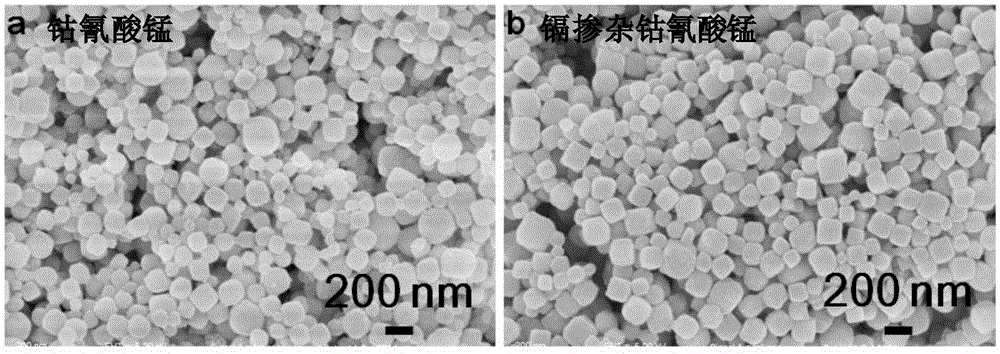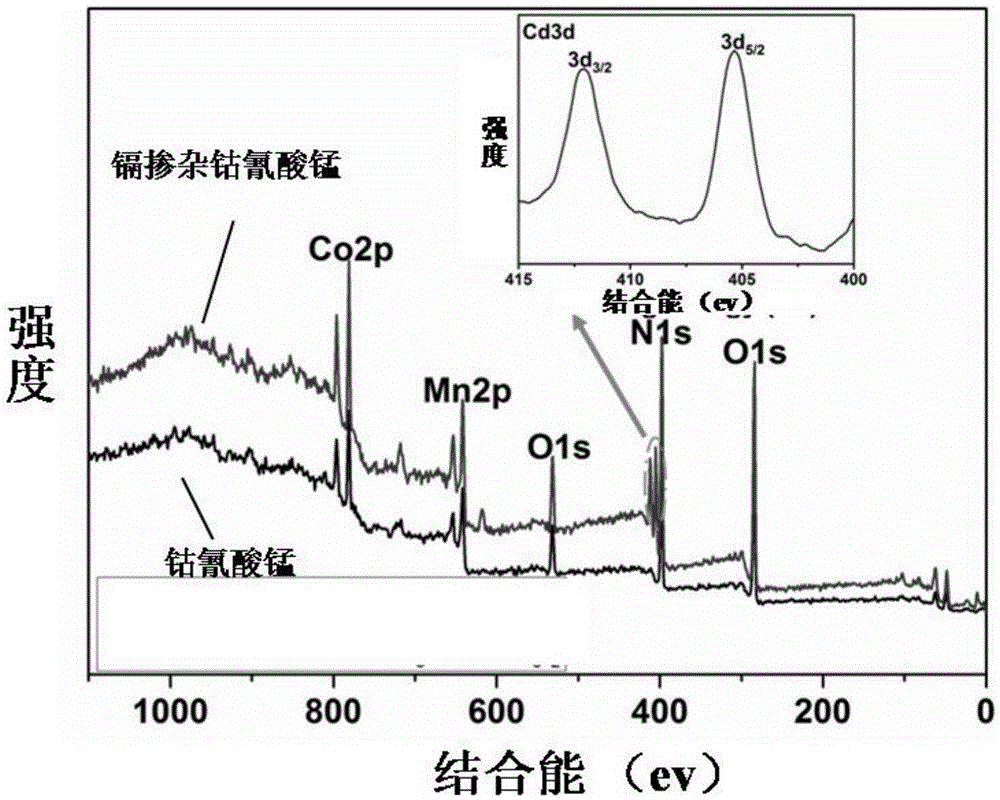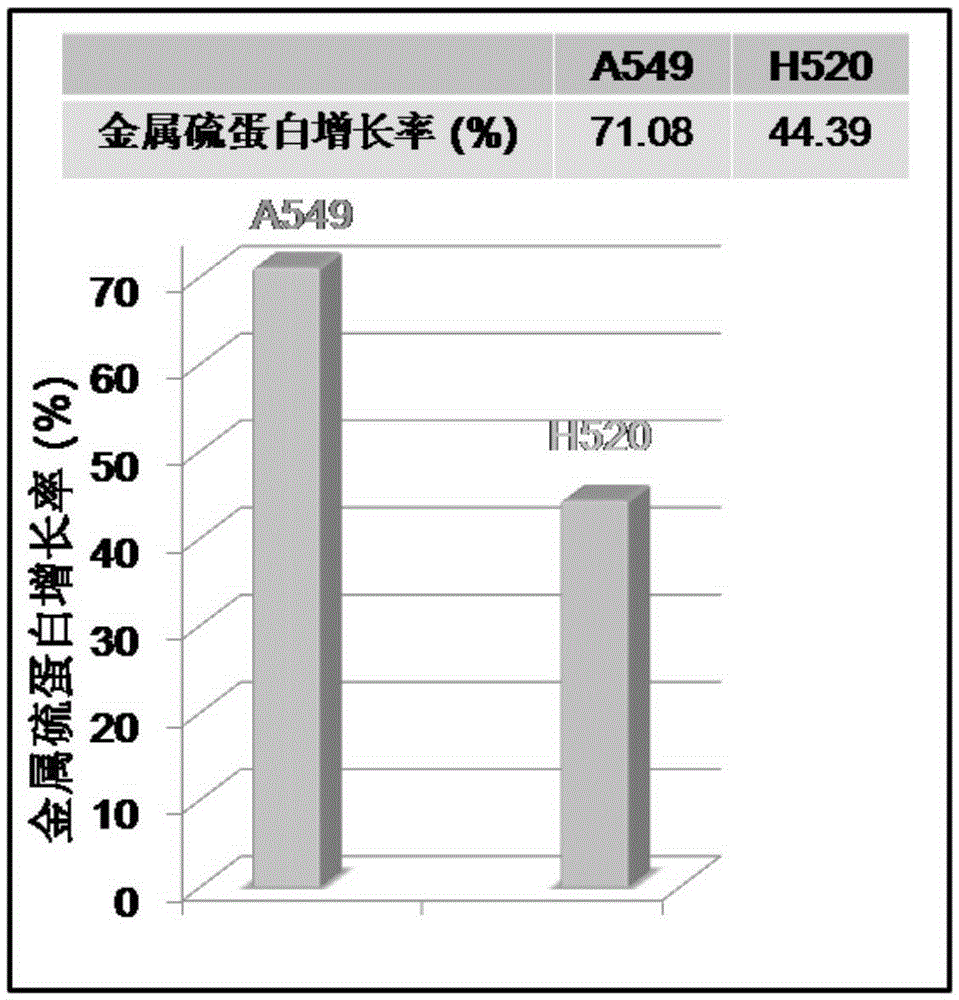Fluorescence imaging probe, preparation method and applications thereof
An imaging probe and nano-fluorescence technology, applied in the field of nano-medicine, can solve the problems of indistinguishability and low cure rate of non-small cell cancer patients
- Summary
- Abstract
- Description
- Claims
- Application Information
AI Technical Summary
Problems solved by technology
Method used
Image
Examples
preparation example Construction
[0053] In some specific embodiments of the present invention, the preparation method of nanometer fluorescent imaging probe comprises the following steps:
[0054] Prepare uniform manganese cobalt cyanate nanoparticles: take 0.15mmol manganese acetate (Mn(CH3COO)2.4H2O) (0.036765g), 0.6gPVP is dispersed in the mixed solution of ethanol and distilled water (15mL ethanol, 5mL distilled water), 0.08mmol Potassium cobaltcyanide (K3[Co(CN)6)]) (0.0265864g) was dispersed in 6mL of distilled water, and then the solution was added dropwise to the above mixed solution, and stirred for 10min to obtain manganese cobaltcyanate nanoparticles.
[0055] Preparation of uniform cadmium-doped manganese cobalt cyanate nanoparticles: 10 mL of distilled aqueous solution containing 0.02 mmol cadmium chloride CdCl (0.0036 g) was added to the prepared manganese cobalt cyanate nanoparticles, and continued to stir for 3 h, then the solution Let stand for 24 hours, and finally centrifuge and wash to obt...
Embodiment 1
[0061] Take 0.15mmol manganese acetate (Mn(CH 3 COO) 2 4H 2 O) (0.036765g), 0.6gPVP is dispersed in the mixed solution of ethanol and distilled water (15mL ethanol, 5mL distilled water), 0.08mmol potassium cobalt cyanide (K 3 [Co(CN) 6 )]) (0.0265864g) was dispersed in 6mL of distilled water, and then the solution was added dropwise to the above mixed solution, and stirred for 10min to obtain uniform manganese cobalt cyanate nanoparticles.
Embodiment 2
[0063] 10mL containing 0.02mmol cadmium chloride CdCl 2 The distilled aqueous solution of (0.0036g) joins in the manganese cobalt cyanate solution that makes by embodiment 1, and continues to stir 3h, then solution is left standstill 24h, finally centrifugal washing, promptly obtains uniform cadmium doped manganese cobalt cyanate Nanoparticles (7% content of cadmium ions in the nanofluorescence imaging probe).
[0064] According to the scanning electron microscope image ( figure 1 ) It can be seen that the product has good dispersibility. After cadmium ions are doped into the manganese cobalt cyanate nanoparticles, the structure of the original nanoparticles is not affected, and the X-ray photoelectron spectroscopy analysis diagram ( figure 2 ) shows that after doping, the characteristic peak of cadmium element appears in the product, which proves that cadmium ions are indeed doped into manganese cobalt cyanate nanoparticles.
PUM
 Login to View More
Login to View More Abstract
Description
Claims
Application Information
 Login to View More
Login to View More - R&D
- Intellectual Property
- Life Sciences
- Materials
- Tech Scout
- Unparalleled Data Quality
- Higher Quality Content
- 60% Fewer Hallucinations
Browse by: Latest US Patents, China's latest patents, Technical Efficacy Thesaurus, Application Domain, Technology Topic, Popular Technical Reports.
© 2025 PatSnap. All rights reserved.Legal|Privacy policy|Modern Slavery Act Transparency Statement|Sitemap|About US| Contact US: help@patsnap.com



